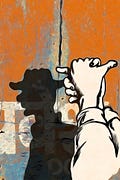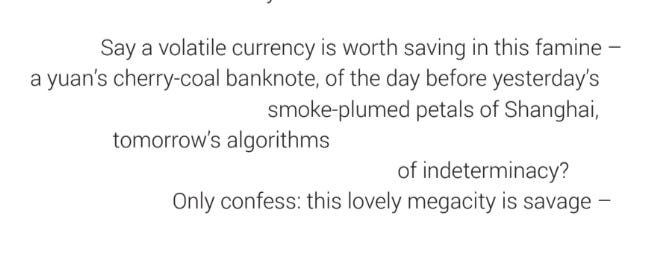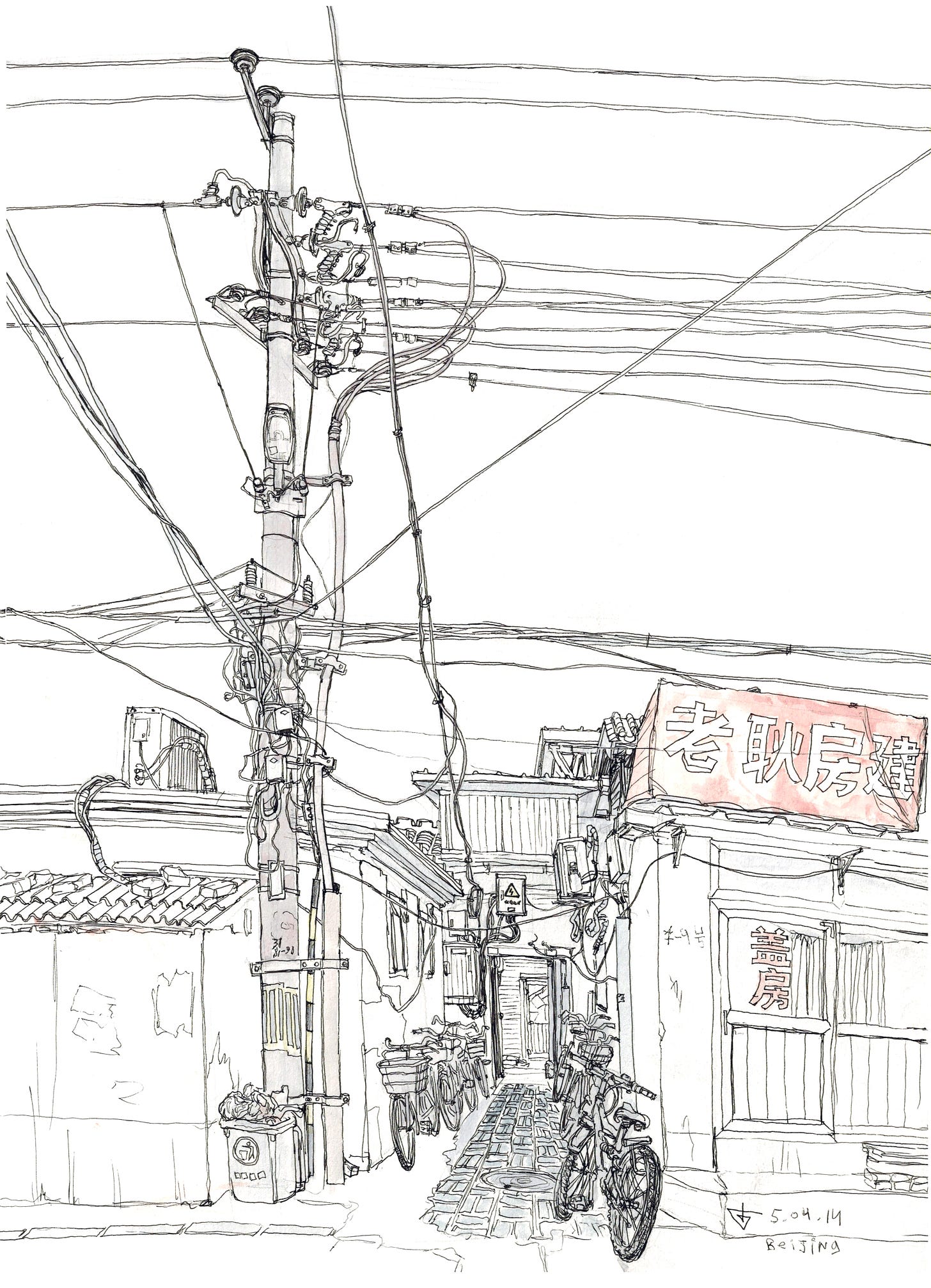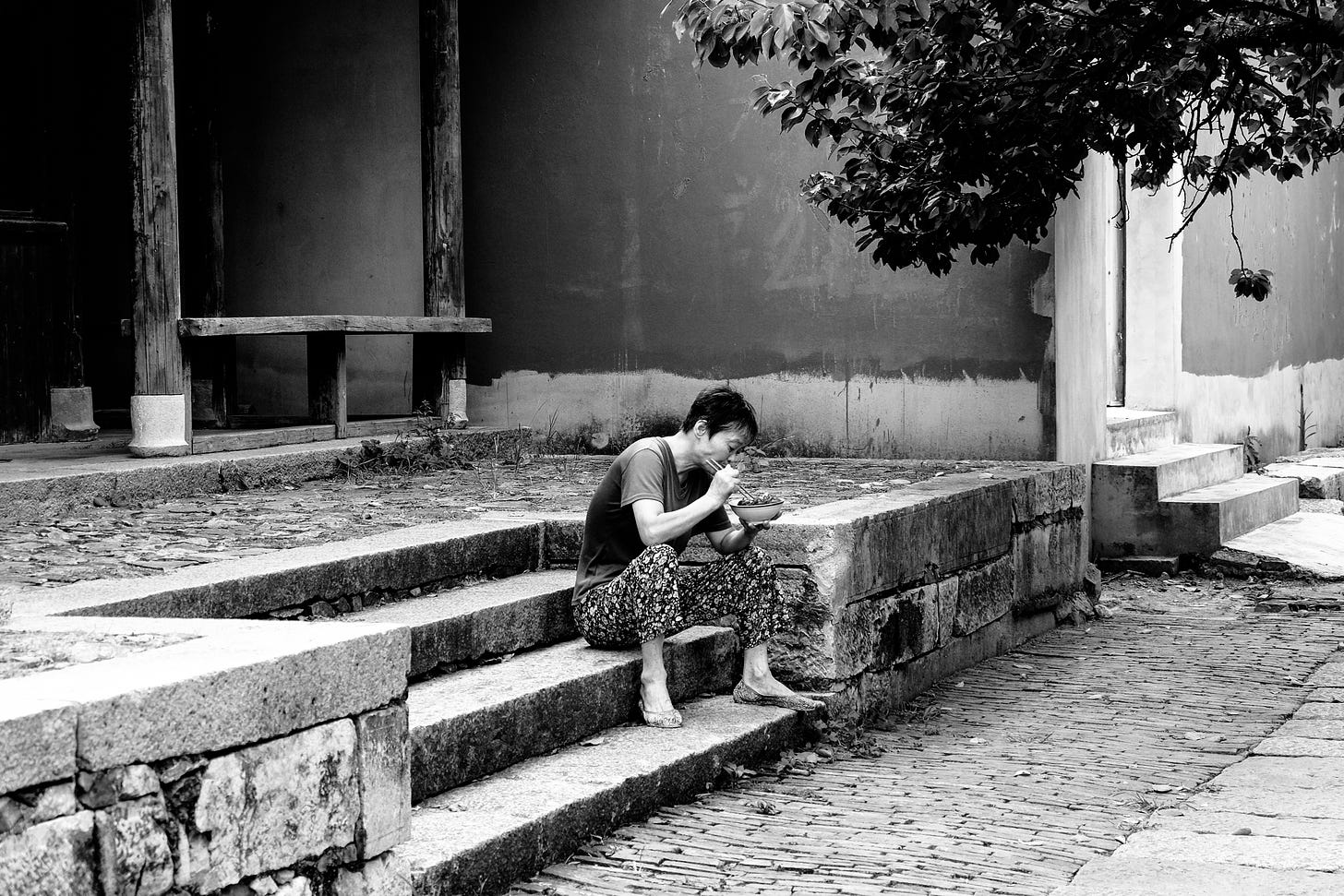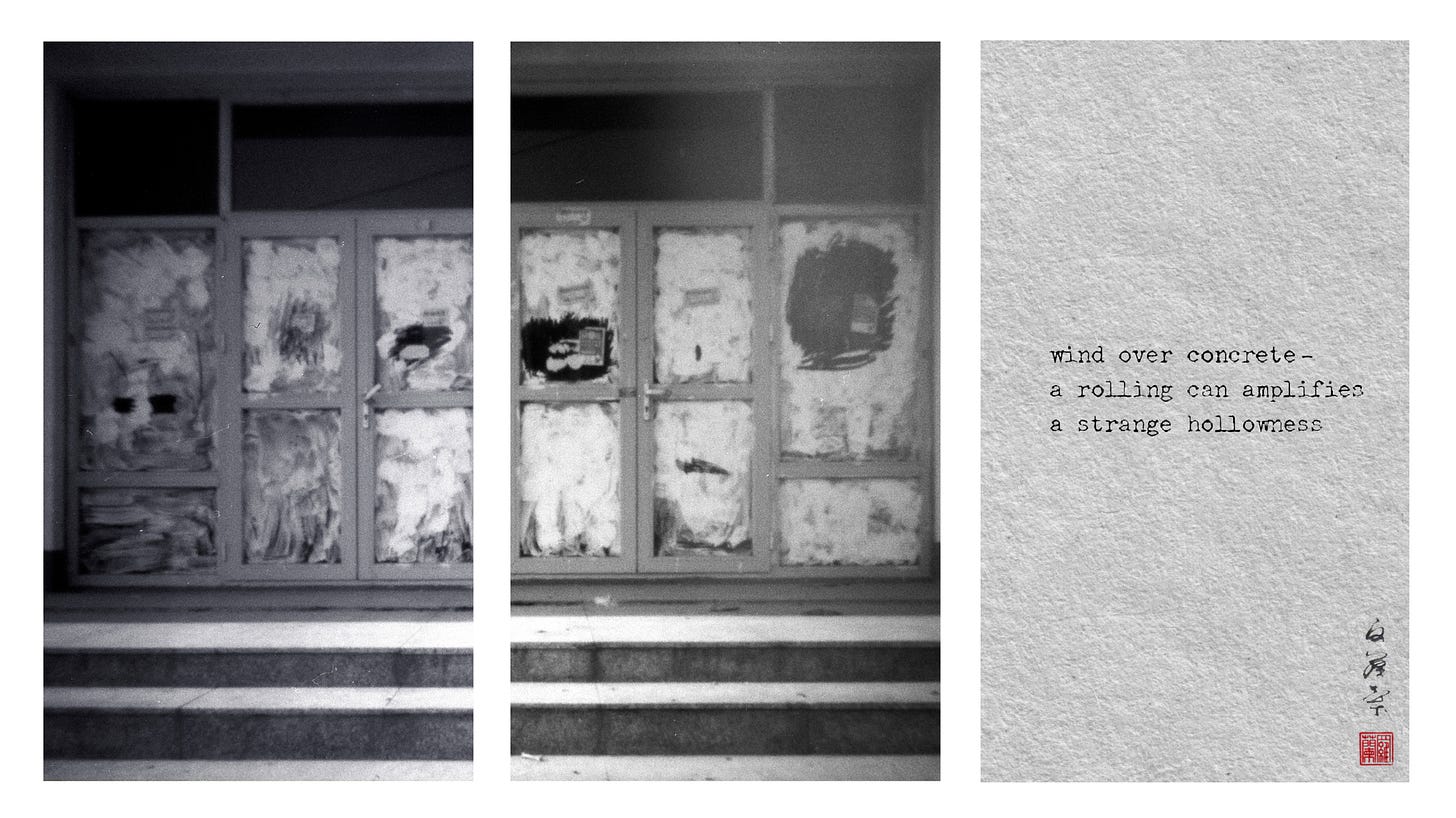The Shanghai Literary Review is a profoundly visual project. Our literary texts are visual. Our covers, artwork, and photographs are visual. Our interviews are conversations condensed into a visual print form. Visual here implies a method of seeing, and sometimes, we get stuck in the same patterns of seeing. We check the cover, see the editor’s note, check the table of contents, and go to our selected part. Sometimes we flick through an issue just focusing on the visual media, sometimes we read just the poetry sections. Seeing all in a consistent chronology.
This digital collage attempts to reinvent old patterns of seeing and presents TSLR’s content in a disrupted way. The Infinite Tapestry is inspired by the online phenomenon called “web-weaving” and is a multi-media collection that spins new ways of seeing TSLR’s content. Each collection has its own theme and is read in one continuous flow undisturbed by captions. The contributors are listed at the end, with readers needing to match the section to their authors. In this secondary reading, the magazine is reviewed, and a new way of Seeing is born.
-Zainab Farooqui, Editorial Assistant and TSLR Tapestry Weaver
On Shanghai (From TSLR2)
Notable es siempre la animación del Bund, desde las primeras horas de la
madrugada hasta las diez ó las once de la noche á lo sumo, porque los shangaienses,
que se levantan casi con el sol, gustan de retirarse temprano á sus casas. Pero
cuando esta animación llega á su auge es poco antes de las doce de la mañana, y
según sea verano ó invierno, á las cuatro ó cinco de la tarde, horas en que se cierran
oficinas, tiendas y despachos y se echan las gentes ocupadas á la calle. Y como yo
llegué al quai de las Mensajerías al dar las doce campanadas del mediodía en el reloj
de la torre de la vecina Aduana, tuve inmediata ocasión de ver el bullicio en todo su
apogeo, formando la más favorable opinión de tan animada ciudad, no obstante el
terrible calor que hacía en ella y ciertos malos olores, de los que algo habré de decir
más adelante.
The Bund is always lively, from early in the morning to ten or eleven at
night, because the Shanghainese, who wake up early, enjoy retiring to their
houses early. But the animation reaches its peak by midday and, depending on
whether it is summer or winter, at four or five in the afternoon, when offices and
shops close their doors and people fill the streets. And as I arrived at the quai of
the Messageries when the neighboring clock of the Customs tower announced
twelve o’clock, I had the opportunity to witness the bustle in its climax, and I
had the most favorable opinion of the city in spite of the horrible heat and bad
smells, to which I will refer later.
see, this is how you sing to the Great Terrible City:
bribe it with good fortune. feed it a logic
riddle. these are good things to give to certain
locations. do you believe in ghosts? no. i believe in
being haunted. i wish you could be done with a place
and have it not haunt you. i am wishing for
too much. Shanghai, which is 上海, which is
“upon-the-sea,” which is fairytale. i used to be afraid of
how unknowable the sea was, its vast reach.
its love for flesh. its hunger for deep.
Contributors~
Editor’s Note, Juli Min // The Man, Ashley Owen // On Defamations of Millennial Love in the Metropolis, Karen An-hwei Lee // Xintaicang Hutong 新太仓胡同, Evgeny Bondarenko // Langston Hughes in Shanghai, Kassy Lee // Chinese Shadows: Remembrances of a voyage to the Celestial Empire, Luis Valera y Delavat, translated by Xavier Ortells-Nicolau // To the Old Time #4, Wen Liu // Because of Mendelssohn, Zu Jingzhi, translated by Jeremy Tiang //Poem No.66 (Wind Over Concrete), Roland Buckingham-Hsiao // An Orthodox Christian in the Mosque’s Place of Honor, Nektaria Petrou // A Hymn to Shanghai, Nancy Huang, after Lin Yutang
About Zainab Farooqui, Editorial Assistant:
Zainab Farooqui is an avid devourer of fiction, poetry, and tea. Originally from Lahore, Pakistan, her creative and critical interests are in the intersections of gendered literature and South Asia. She can be found in your local coffeehouse debating postcolonial theory or anime episodes.
Preorder our latest issue of The Shanghai Literary Review here!

